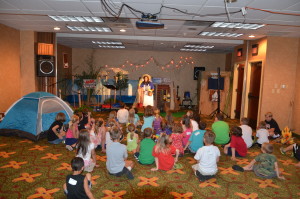By Carl Nichols
Several weeks ago my wife received a phone call from a friend regarding a potential opportunity for our family. I will spare the details, but essentially it involves a widespread platform in which our family values will be on  display. Because of the somewhat controversial nature of the topic, Julie and I had to really evaluate if it was right for our family or not. When opportunities present themselves in our lives, we always try to follow a simple process that helps us determine if this is right for us. We ask a series of questions that help us navigate the process. I though I would take some time to share this approach with you.
display. Because of the somewhat controversial nature of the topic, Julie and I had to really evaluate if it was right for our family or not. When opportunities present themselves in our lives, we always try to follow a simple process that helps us determine if this is right for us. We ask a series of questions that help us navigate the process. I though I would take some time to share this approach with you.
Does this in any way conflict with our biblical worldview?
Ultimately, like many who will read this blog, our worldview centers around the scriptures. Many things are black and white in the scriptures and many are gray areas that are left to us to make the wisest decision. If the evidence points to this opportunity conflicting with the teachings of the scriptures, then clearly we let it lie. If in fact it is unclear, we ask ourselves this question, “In light of our past experiences and future hopes and dreams, is this the wisest thing for us to do?”
Does this put our family or our relationship at risk? If so, are the risks calculated and worth it?
We do not ask this question so we can run from risk, but rather help us understand the risk involved. If in fact our family values have to be compromised, then again we will not engage. More often than not there is some risk involved in every great opportunity. We must know what the risks are, and plan and protect our family accordingly.
Will others benefit from us doing this?
This is such a counter cultural question. When most would ask, “Will I benefit?” we try to heed the words of Paul in Philippians 2:3 by asking how this can be used to benefit others. This is not my nature-I want to be the point. I want to benefit. However, it cannot be about me or us or it will likely fail. There are, of course, business opportunities that we have been a part of that did not help anyone but ourselves. However, there are also things that we have done with no benefit to us, but exponential benefits for others. It’s a delicate balance.
Is this the right time?
Regarding this particular opportunity, we decided to pursue it. However, the same day of the final meeting, I sustained a serious injury that could effect the situation. I don’t know how it will turn out, but I am open to the fact that now may or may not be the right time. If the injury causes the other party to pull back, then that brings some clarity. If, however, we both chose to move forward, then this injury may be even more a part of the platform.
What are the consequences of not doing this?
Whose lives will be effected negatively? What gospel opportunity will be missed? What will my kids miss out on? These are just a few questions we carefully consider.
Will we regret letting the opportunity pass?
I will just sum this up with this statement: I would rather get to the end of my life and regret trying some things and failing, than not trying those things and regret the missed opportunity. I believe at the end of our lives we will regret the “sins of omission” much more that the “sins of commission.” That’s just a personal belief, but I challenge you to ponder it.

